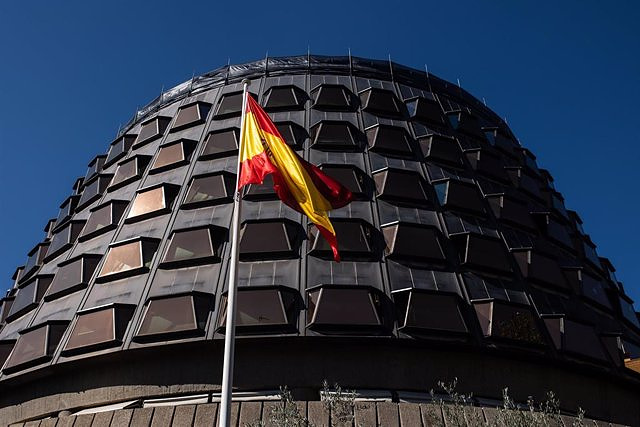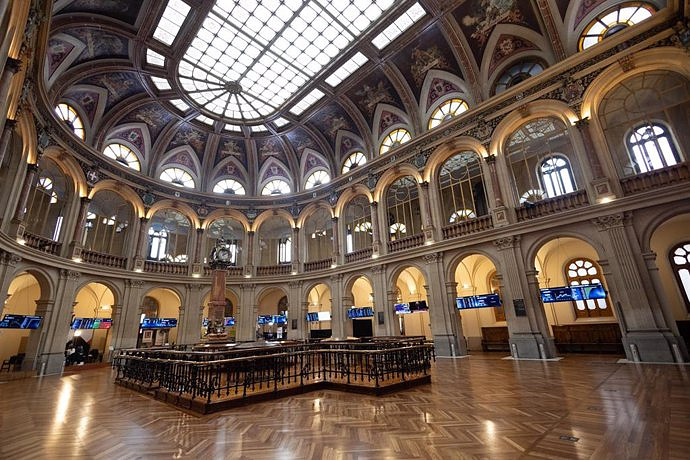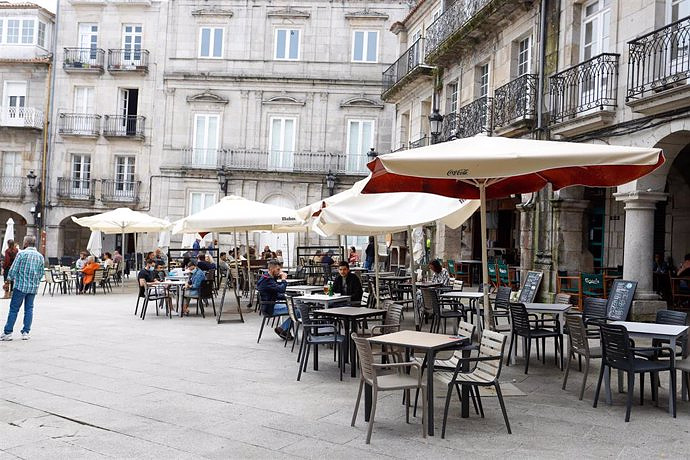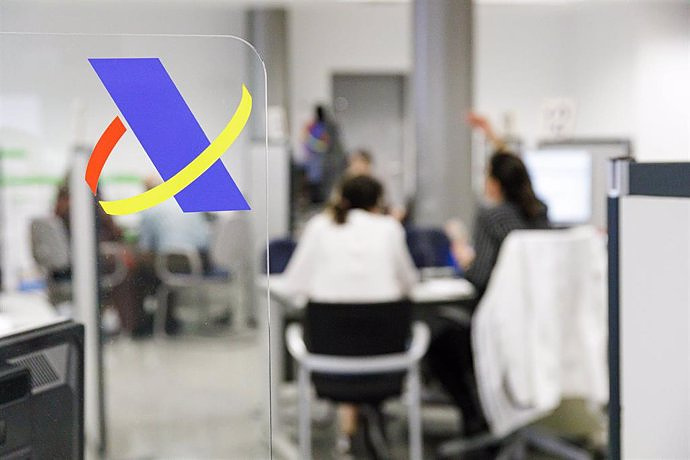The Second Chamber will study whether to raise Casero's appeal against Batet to the Plenary for the vote on the labor reform
MADRID, 11 Sep. (EUROPA PRESS) -
The Plenary of the Constitutional Court (TC) meets this Tuesday to decide whether or not to admit the appeal of PP and Cs against several articles of the Catalan law that eliminates 25 percent of Spanish in the classroom.
Specifically, the formations filed an appeal against several articles of the Decree-law of Catalonia 6/2022, which establishes the criteria applicable to the preparation, approval, validation and review of linguistic projects of educational centers. They also appealed articles 2.1 and 2.4 of the Catalan Law 8/2022 on the use and learning of official languages in non-university education.
As reported by the guarantee body, Judge Antonio Narváez will be in charge of defending the presentation before the plenary session of the court.
Both PP and Ciudadanos understand that with these regulations the Catalan Government violates the Constitution by omitting any reference to Spanish as the vehicular language of education in Catalonia. The leader of the PP, Alberto Núñez Feijóo, and the president of Ciudadanos (Cs), Inés Arrimadas, announced in May that they would jointly appeal to the Constitutional Court the law of Catalan in schools agreed between the PSC, ERC, Junts and the commons.
The general secretary of the PP, Cuca Gamarra, assured -at a press conference at the party's headquarters in Madrid- that the resource to guarantee Spanish in the schools of Catalonia should have been promoted by the Government of Pedro Sánchez, but that he had "resigned so that he can remain president."
In an appearance in Barcelona, the leader of Ciudadanos criticized the "trap decree" on the Catalan of the Government and defended the need to present this resource together with the Popular Party to make unity of constitutionalist action against the independence movement.
One of the grounds for the appeal is that both the Decree and the Law omit any reference to Spanish as the vehicular language in education in Catalonia, violating the Spanish Constitution, the Statute of Autonomy and the Court's own doctrine in a judgment of June 2010, as stated in a statement released by the PP.
The appeal explains that the Decree Law violates article 64 of the Statute of Autonomy of Catalonia and 86 of the Magna Carta, as there is no enabling basis for the use of said rule that requires extraordinary and urgent need, in addition to transcending the limits established in the Statute for the use of said regulatory instrument.
Other grounds for the appeal focus on the fact that the cited regulations violate constitutional precepts related to the autonomy of the centers guaranteed by the basic regulations of the State and with the high inspection as exclusive competence of the same, in addition to the competence of the State for the regulation of the use from Castilian.
Likewise, the Plenary must resolve Vox's appeal against the law that reforms civil and procedural legislation to support people with disabilities in the exercise of their legal capacity.
In turn, you must decide whether or not to admit the appeal of those of Santiago Abascal against several articles of the Catalan law that modifies the law to face the emergency in the field of housing.
For its part, the Second Chamber of the Constitutional Court plans this week to decide whether to raise to the Plenary two appeals by the PP deputy Alberto Casero and the Popular Parliamentary Group against the president of Congress, Meritxell Batet, for the vote on February 3 of the reform labor, which went ahead by 175 votes in favor against 174 against.
As reported by the court of guarantees, the magistrates of the Second Chamber will meet tomorrow, Monday, at 10 a.m., to debate --among other matters-- whether to leave in the hands of the Plenary the decision to admit or not the appeals for processing. the 'popular' and a Vox resource also related to the vote on the labor reform.
The PP took to the Constitutional Court the "democratic outrage" that, in its opinion, was committed in the vote on the labor reform. Speaking to Europa Press, spokeswoman Cuca Gamarra assured that that day "the right" of Casero was violated, that she warned "in advance" of what had happened with the telematic vote. She, to her understanding, had "capacity" for the deputy to vote in person.
The Popular Group presented the appeals before knowing the report of the lawyers of the Congress, who concluded that Casero's vote in favor of the labor reform was valid and that it could not be revoked even if he was wrong. In that report, it was also ruled out that there was a failure of the computer system.
Likewise, the Second Chamber is expected to study whether or not to admit the appeal of the deputies of the Citizens Parliamentary Group against the agreements of the Parliamentary Table of March 25 and 26, 2021 that allowed the former minister and deputy of Junts Lluís Puig --who lives in Belgium-- to delegate his vote for the session held on the debate on the investiture of Pere Aragonès as Catalan president.
Already last July, the Constitutional Court itself gave protection to the parliamentary groups of Ciudadanos and Vox in the Parlament and declared their rights to exercise their representative functions violated with the requirements indicated by the laws (article 23.2 of the Spanish Constitution), which is in connection with the right of citizens to participate in public affairs through their representatives (article 23.1).

 Exploring Cardano: Inner Workings and Advantages of this Cryptocurrency
Exploring Cardano: Inner Workings and Advantages of this Cryptocurrency Seville.- Economy.- Innova.- STSA inaugurates its new painting and sealing hangar in San Pablo, for 18 million
Seville.- Economy.- Innova.- STSA inaugurates its new painting and sealing hangar in San Pablo, for 18 million Innova.- More than 300 volunteers join the Andalucía Compromiso Digital network in one month to facilitate access to ICT
Innova.- More than 300 volunteers join the Andalucía Compromiso Digital network in one month to facilitate access to ICT Innova.-AMP.- Ayesa acquires 51% of Sadiel, which will create new technological engineering products and expand markets
Innova.-AMP.- Ayesa acquires 51% of Sadiel, which will create new technological engineering products and expand markets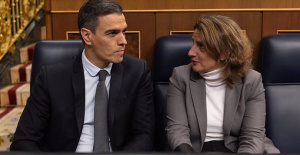 Sánchez avoids clarifying whether Ribera will be a candidate on 9J but places her at the level of Calviño and Borrell, with European positions
Sánchez avoids clarifying whether Ribera will be a candidate on 9J but places her at the level of Calviño and Borrell, with European positions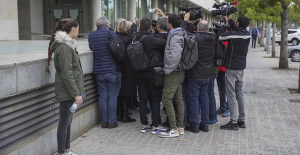 Seven CCAA, Ceuta and Melilla did not execute the Equality budget against sexual exploitation of minors under guardianship
Seven CCAA, Ceuta and Melilla did not execute the Equality budget against sexual exploitation of minors under guardianship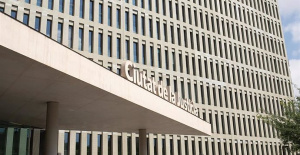 The judge investigating 'Negreira' and 'Voloh' receives a false package bomb in his office
The judge investigating 'Negreira' and 'Voloh' receives a false package bomb in his office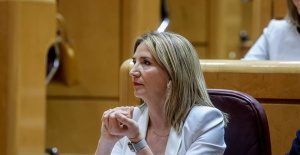 The PP expands the Senate investigation commission to cover matters that affect Begoña Gómez and the Delcy case
The PP expands the Senate investigation commission to cover matters that affect Begoña Gómez and the Delcy case How Blockchain in being used to shape the future
How Blockchain in being used to shape the future Not just BTC and ETH: Here Are Some More Interesting Coins Worth Focusing on
Not just BTC and ETH: Here Are Some More Interesting Coins Worth Focusing on LIFE SPOT manages to develop new green treatments that eliminate groundwater contamination
LIFE SPOT manages to develop new green treatments that eliminate groundwater contamination València Game City is born to promote the video game industry and position this city as a leader in the sector
València Game City is born to promote the video game industry and position this city as a leader in the sector A team of UPV and iPRONICS manufactures the first programmable and multifunctional photonic chip on the market
A team of UPV and iPRONICS manufactures the first programmable and multifunctional photonic chip on the market 'Science and Reeds' returns with talks about "the mystery of the lost socks" or the vinegar fly
'Science and Reeds' returns with talks about "the mystery of the lost socks" or the vinegar fly A million people demonstrate in France against Macron's pension reform
A million people demonstrate in France against Macron's pension reform Russia launches several missiles against "critical infrastructure" in the city of Zaporizhia
Russia launches several missiles against "critical infrastructure" in the city of Zaporizhia A "procession" remembers the dead of the Calabria shipwreck as bodies continue to wash up on the shore
A "procession" remembers the dead of the Calabria shipwreck as bodies continue to wash up on the shore Prison sentences handed down for three prominent Hong Kong pro-democracy activists
Prison sentences handed down for three prominent Hong Kong pro-democracy activists ETH continues to leave trading platforms, Ethereum balance on exchanges lowest in 3 years
ETH continues to leave trading platforms, Ethereum balance on exchanges lowest in 3 years Investors invest $450 million in Consensys, Ethereum incubator now valued at $7 billion
Investors invest $450 million in Consensys, Ethereum incubator now valued at $7 billion Alchemy Integrates Ethereum L2 Product Starknet to Enhance Web3 Scalability at a Price 100x Lower Than L1 Fees
Alchemy Integrates Ethereum L2 Product Starknet to Enhance Web3 Scalability at a Price 100x Lower Than L1 Fees Mining Report: Bitcoin's Electricity Consumption Declines by 25% in Q1 2022
Mining Report: Bitcoin's Electricity Consumption Declines by 25% in Q1 2022 Oil-to-Bitcoin Mining Firm Crusoe Energy Systems Raised $505 Million
Oil-to-Bitcoin Mining Firm Crusoe Energy Systems Raised $505 Million Microbt reveals the latest Bitcoin mining rigs -- Machines produce up to 126 TH/s with custom 5nm chip design
Microbt reveals the latest Bitcoin mining rigs -- Machines produce up to 126 TH/s with custom 5nm chip design Bitcoin's Mining Difficulty Hits a Lifetime High, With More Than 90% of BTC Supply Issued
Bitcoin's Mining Difficulty Hits a Lifetime High, With More Than 90% of BTC Supply Issued The Biggest Movers are Near, EOS, and RUNE during Friday's Selloff
The Biggest Movers are Near, EOS, and RUNE during Friday's Selloff Global Markets Spooked by a Hawkish Fed and Covid, Stocks and Crypto Gain After Musk Buys Twitter
Global Markets Spooked by a Hawkish Fed and Covid, Stocks and Crypto Gain After Musk Buys Twitter Bitso to offset carbon emissions from the Trading Platform's ERC20, ETH, and BTC Transactions
Bitso to offset carbon emissions from the Trading Platform's ERC20, ETH, and BTC Transactions Draftkings Announces 2022 College Hoops NFT Selection for March Madness
Draftkings Announces 2022 College Hoops NFT Selection for March Madness